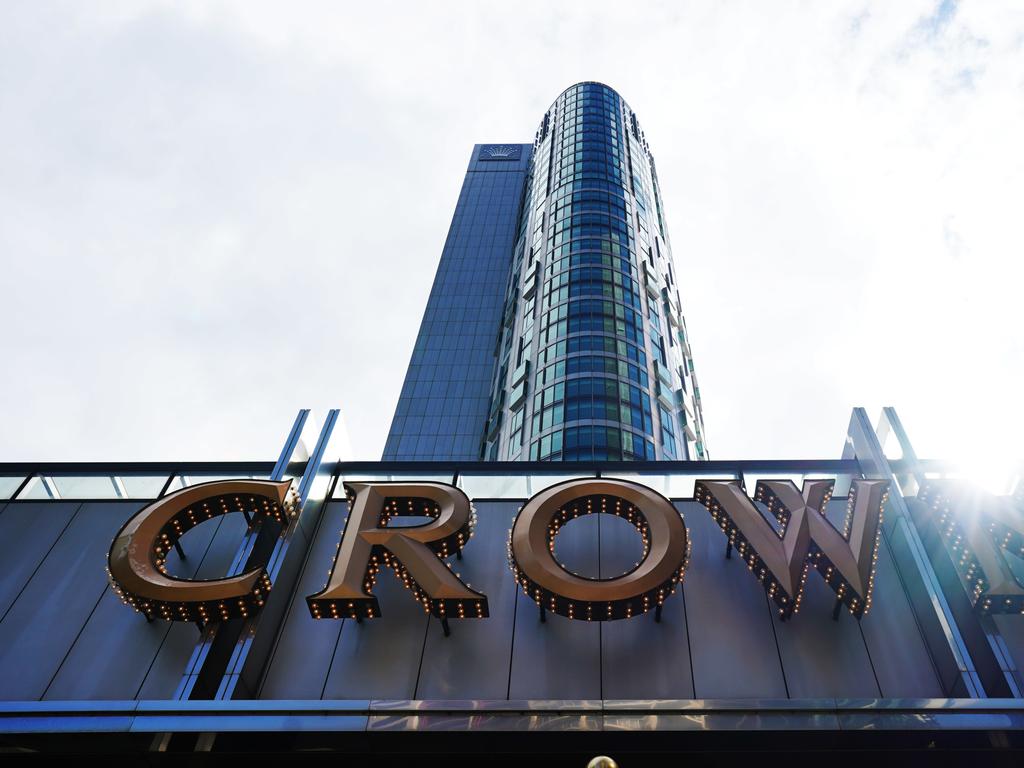James Packer punches back at NSW casino inquiry
After more than 50 days on the ropes, James Packer’s camp has come out swinging at the NSW casino inquiry. Hard.

After more than 50 rounds over 50 days that put James Packer firmly on the ropes and in his worst moments, flat on the canvas, the billionaire has risen to his feet and punched back.
Hard.
His lawyer Noel Hutley — the man the Murdochs chose to defend them 15 years ago when Kerry Stokes sued them and everyone else in the local media sector for the failure of his fledgling sports pay-TV network — had delivered a rousing defence of Packer’s suitability to remain an associate of the licensee company for Crown’s Sydney casino.
At the heart of the opening rounds of Hutley’s defence in the NSW gaming inquiry hearing on Wednesday morning was a single word: context.
The allegations of counsels assisting the inquiry made headlines around the world last week when they claimed Packer’s control and influence over Crown had damaged the company and fatally compromised its governance, and made him unsuitable to be associated with Crown Sydney.
But amid all the noise, Hutley urged Inquiry Commissioner Patricia Bergin to stand back from the evidence before her and examine the bigger picture.
A total 287 emails, Hutley revealed, had been sent to Packer between November 2018 and May 2019 under a seemingly bizarre — and what has been asserted was an out of order —controlling shareholder protocol agreed between Packer’s private company Consolidated Press Holdings and Crown.
Of those, 246 were sent by Crown’s former chief financial officer Ken Barton, where he largely sent updates of the EBITDA of the company, of which Packer replied to 20.
Just six of the email chains where Packer had allegedly given orders or instructions were seized upon by the counsels assisting to support their case arguing against his suitability and their assertion that he was acting as a defacto director of Crown during the period, which means he would be subject to the same duties and sanctions as a formal director.
Hutley’s case focussed on the legal definition of a defacto director to show there was no foundation that Packer was involved in a substantive way in board and management of the business.
His most powerful point about the controlling shareholder protocol was that it was an idea put up by Crown to keep Packer’s involvement in the business, to help maximise the profits of the company, and was a “two-way street” between both parties.
And that most of the discussion within it focussed purely on financial matters.
At times Hutley’s analysis varied between arguing Packer was acting as a mere adviser and then at other times as a 46 per cent shareholder, as he was during the period (CPH now has a 37 per cent interest in Crown). It drew Bergin’s ire.
“The lines were blurred here in respect of his role either as an adviser as a shareholder. If it is as a shareholder, I understand your submission clearly. If it is an adviser, it is more complicated,’’ she said.
Bergin also asserted that Packer had acknowledged he took some responsibility for Crown’s governance and risk management failings during the years he was executive chairman.
But this didn’t deviate Hutley from his core argument: that counsel assisting had relied on small number of emails between Packer and various Crown executives to demonstrate his “profound influence” over Crown in the period most relevant to reviewing its suitability.
Hutley argued Packer’s communications on the financial matters of the company were also “just one aspect” of an immensely complex corporation.
“The board minutes cover a wide range of topics of great significance to the fortunes of Crown during this period … There is no suggestion made of Mr Packer’s involvement in any of them (outside the budgets),” he said.
Hutley also claimed the Crown board’s decision to reject Packer’s urging for it to accept the terms of US casino operator Wynn Resorts’ indicative, non-binding change of control proposal for Crown in March 2019 also highlighted the independence of the directors.
But perhaps his most powerful assertion as to Packer’s character and suitability to remain an associate of the Sydney licence came just before the luncheon adjournment, when the hearing went behind closed doors to hear medical evidence about Packer’s mental health condition.
Hutley has asserted previously that the illness was behind a life-threatening email sent by Packer to private equity executive Ben Gray at the end of 2015, which Packer acknowledged was shameful and disgraceful. Packer himself blamed it on his “bipolar disorder.”
“There is no basis to suggest any such conduct is likely to be repeated,’’ Hutley declared, noting Bergin had seen hundreds and hundreds of emails from Packer during the inquiry that showed that this one was very much exceptional.
“There is no threat of any such conduct ever being repeated. None. Nothing has been pointed to suggest there is the remotest likelihood of it occurring again. My client dealing with (his condition) shows his character and honesty. Dealing with that goes to his complete credit and should be a matter of respect.” He called for “compassion and understanding” of Packer’s condition.
Hutley also noted in a broader context earlier in the day that past events are only relevant if they have a “meaningful nexus to present suitability”.
So that also, in his view, makes the debates about Packer’s influence in Crown under the controlling shareholder protocol historical because Crown has now scrapped the agreement, at CPH’s request.
Packer and CPH are coming from a long way back in this flght. And Bergin’s scepticism at times on Wednesday should give them cause for plenty of concern.
She again highlighted Packer’s “dominant personality”, which she has asserted on a number of occasions during the hearings had a serious impact on the governance of Crown.
She returned to an email to Barton where Packer urged him to make sure the company could achieve a financial forecast “for your own sake.” And she talked of Packer getting “angry” because the company was missing budgets.
Packer is now at least bringing some balance to the battle. Crown will do the same next week when it is also expected to reveal a number of extra measures it is taking to make itself suitable to retain the Sydney licence, which could revolve around culture and future dealings with junkets.
Whether all this will be too little, too late for Patricia Bergin hangs in the balance.
But the odds appear to be still stacked firmly against Packer and Crown winning this war.








To join the conversation, please log in. Don't have an account? Register
Join the conversation, you are commenting as Logout